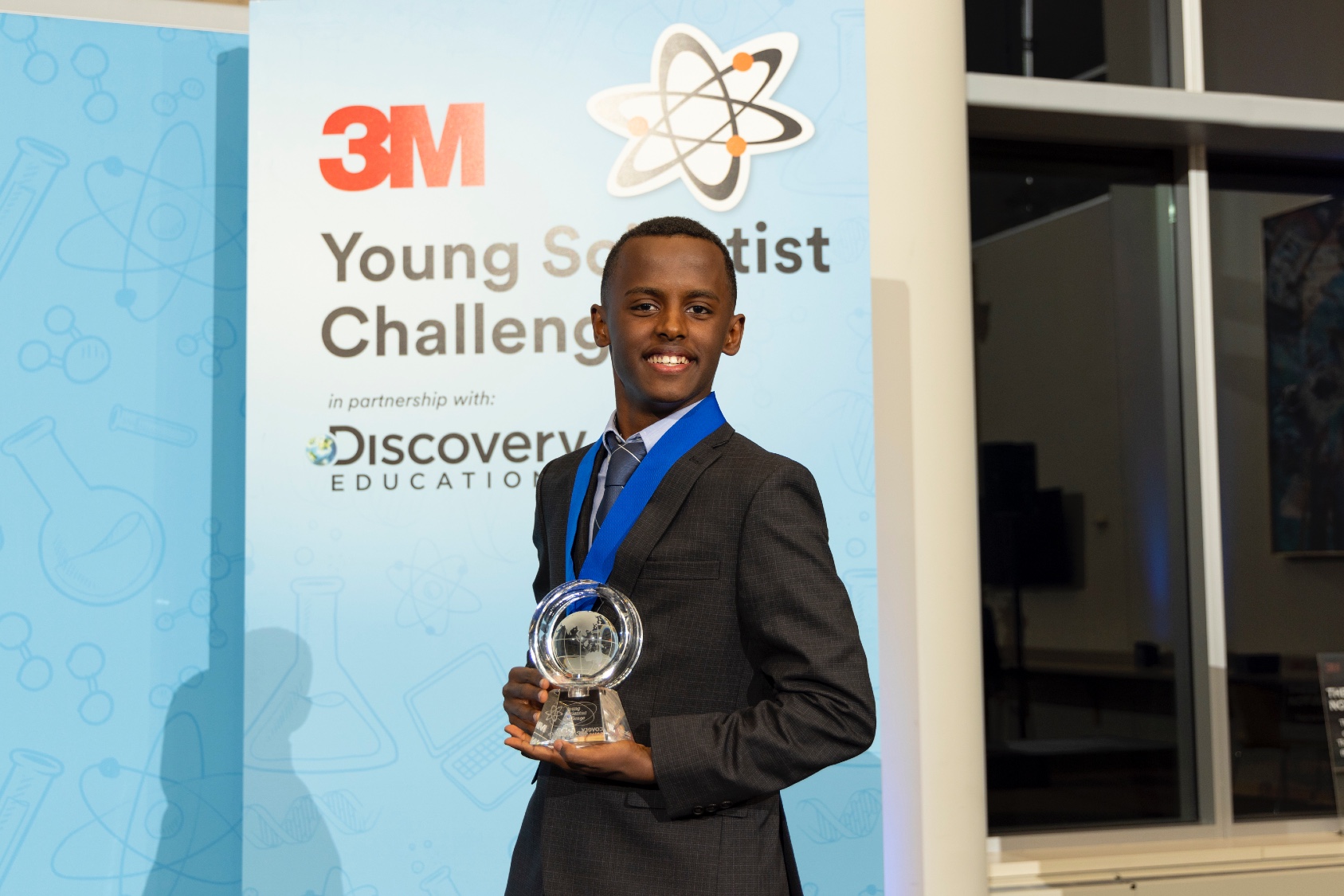The week's good news: Oct. 26, 2023
It wasn't all bad!


A free daily email with the biggest news stories of the day – and the best features from TheWeek.com
You are now subscribed
Your newsletter sign-up was successful
14-year-old develops soap for treating skin cancer
Heman Bekele's invention, Skin Cancer Treating Soap (SCTS), earned the 14-year-old a $25,000 prize and the title of America's Top Young Scientist. For the 3M Young Scientist Challenge, Bekele developed a compound-based soap that treats melanoma, the most common cancer in the United States. This soap only costs 50 cents to make per bar, and it's Bekele's goal to create a nonprofit to distribute the product to people in need. As part of the competition, Bekele was paired with a 3M scientist who helped him take his idea from concept to prototype. "I believe that young minds can make a positive impact on the world," Bekele, a ninth-grader from Annandale, Virginia, told USA Today. "I have always been interested in biology and technology, and this challenge gave me the perfect platform to showcase my ideas." USA Today
After 40 years, pen pals meet in person
Hayley Briggs and Krystel Alston became pen pals in 1980, their letters crisscrossing the country between California and Pennsylvania. "Our differences, we would write about and that's what I would learn about and she would learn about me," Alston told ABC 7. "It was a new experience with a new person." They were both 10 years old when they met, and for several years sent each other handwritten letters and cards. As technology changed, so did their communication, with the friends almost exclusively chatting on social media. After years of knowing each other, Briggs and Alston decided to celebrate turning 50 with an in-person visit, but because of Covid-19, had to postpone the party until recently, when Alston flew out to Pennsylvania to meet Briggs. "We'll just continue to stay in contact and stay in each other's lives," Alston said. ABC 7
Man 'grateful to be alive' after pig heart transplant
One month after receiving a pig heart transplant, Lawrence Faucette is in good spirits, with doctors at the University of Maryland School of Medicine announcing he is not on any supportive devices. The 58-year-old father of two is only the second person to undergo a pig heart transplant, and doctors said if not for the experimental surgery he would have already died of heart disease. "He's grateful to be alive," said Dr. Bartley P. Griffith, the cardiac xenotransplantation clinical director. Transplanting an animal organ into a human is called xenotransplant, and previous surgeries have failed because of the human immune system rejecting the foreign object. In the case of Faucette, who is still recovering in the hospital, a genetically modified organ was used, which doctors said was more humanlike. Every year, 6,000 Americans on organ transplant lists die before they find a match, and there's hope that once perfected, xenotransplants could save lives. "We're still on the precipice of potentially a really important therapy," Griffith said. USA Today
The Week
Escape your echo chamber. Get the facts behind the news, plus analysis from multiple perspectives.

Sign up for The Week's Free Newsletters
From our morning news briefing to a weekly Good News Newsletter, get the best of The Week delivered directly to your inbox.
From our morning news briefing to a weekly Good News Newsletter, get the best of The Week delivered directly to your inbox.
Research suggests hitting the snooze button isn't a bad idea
A new study has found that delaying getting up could boost people's cognitive performance and have little overall effect on their mood and sleepiness. Researchers "have long wondered whether snoozing affects wakefulness or sleep quality," New Scientist noted, which prompted researchers from Stockholm University to look into the effects. The scientists conducted a two-night study with 31 participants to assess sleepiness, mood, cortisol levels and performance on a series of math and cognitive tests after waking up. The results were "surprisingly" positive, Forbes reported; participants who slept in "exhibited improved memory functioning and solved simple addition questions faster in cognitive tests than participants who did not use the snooze button." Their performance was heightened immediately after waking up, and tapered off when measured again 40 minutes later. Dr. Tina Sundelin, a study author, said those who regularly delay getting up should feel free to continue doing so "if you enjoy it." New Scientist, Forbes
Study: A brisk 22-minute walk could counteract negative effects of sitting too much
New research suggests that a vigorous, 22-minute walk once a day could be enough to combat sitting for long periods of time. A team of scientists looked at data from 11,989 people in the U.S., Norway and Sweden, all over the age of 50 and half of them women. They wore activity trackers that measured moderate (badminton, very brisk walking) to vigorous (basketball, tennis) physical activity and the hours they sat. Researchers found during a five-year follow-up that 6.7 percent of participants had died. "In our study, we found that only those people doing more than 12 hours per day sitting had a higher risk of death," study author Edvard Sagelv of the Arctic University of Norway said. "We are talking about any sitting behavior, such as being in the office or watching TV for long periods of time." When it comes to brisk walking for health, 22 minutes could be the sweet spot, but "the more, the better," Sagelv said. The Guardian
A free daily email with the biggest news stories of the day – and the best features from TheWeek.com
Catherine Garcia has worked as a senior writer at The Week since 2014. Her writing and reporting have appeared in Entertainment Weekly, The New York Times, Wirecutter, NBC News and "The Book of Jezebel," among others. She's a graduate of the University of Redlands and the Columbia University Graduate School of Journalism.
